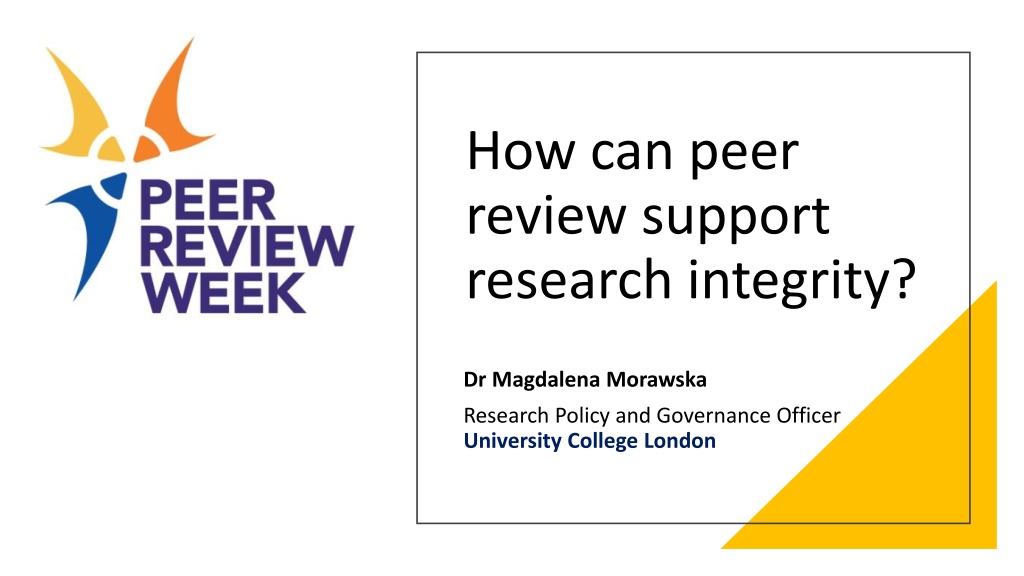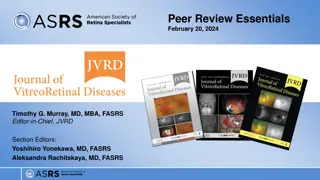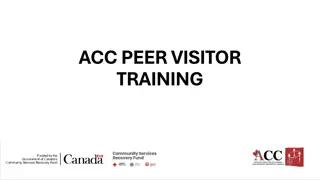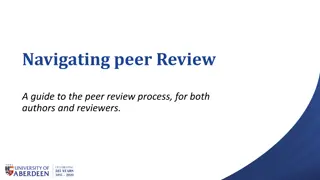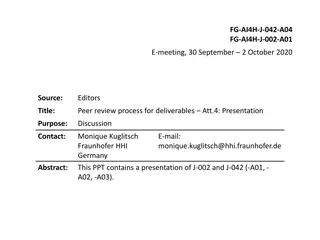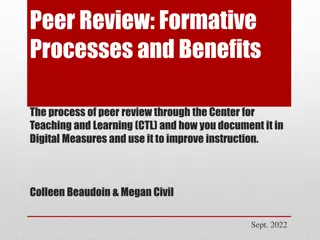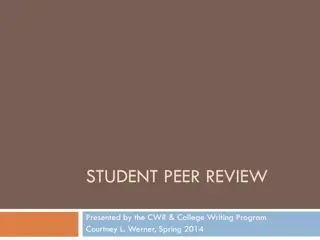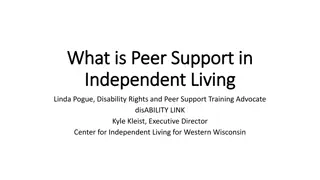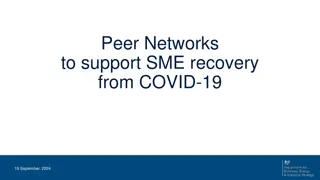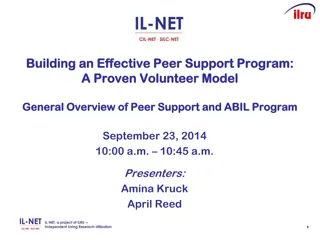Enhancing Research Integrity Through Peer Review: Best Practices and Principles
Peer review plays a crucial role in supporting research integrity by upholding principles like honesty, rigor, care, respect, and accountability. Responding to reviewers and being a reviewer both require the application of these integrity principles to ensure high-quality, trustworthy research outcomes.
Download Presentation

Please find below an Image/Link to download the presentation.
The content on the website is provided AS IS for your information and personal use only. It may not be sold, licensed, or shared on other websites without obtaining consent from the author. Download presentation by click this link. If you encounter any issues during the download, it is possible that the publisher has removed the file from their server.
E N D
Presentation Transcript
How can peer review support research integrity? Dr Magdalena Morawska Research Policy and Governance Officer University College London
Research Integrity and Peer review are linked Research Integrity Peer Review To deliver high quality research that can be trusted.
UK The Concordat to Support Research Integrity: Honesty Rigour Care and respect Accountability Transparency and open communication The European Code of Conduct for Research Integrity: Honesty Reliability Respect Accountability Principles of research integrity
Responding to reviewers When you are responding to reviewers, apply the principles of integrity: Honesty Look at the comments honestly, is there a point worth considering that you might have missed or an error you did? Rigour Check and recheck the data, pay attention to the details. Make sure you respond to all of the comments raised. Open and Transparent Communication Be clear on the limitation of the work and what comments you agree and what you disagree with. If you have any concerns or questions about the review or the comments, raise them with the editor. Care and Respect Show care and respect for the editor and reviewers and the work and time they have put in; think about your language, you don t have to agree with everything they say but you can disagree in a respectful manner. Accountability It is your responsibility to publish the best quality research, use the peer review as an opportunity to learn and be better.
Being a reviewer The research integrity principles can be helpful here too: Honesty Be honest about both the positive and the negative parts of the work. Be honest about your own knowledge and limitations are you the right person to judge this whole work and all its aspects? Rigour Pay attention to the details Open and Transparent Communication Do you have any concerns about the work? Think careful about any potential conflicts of interest that might affect you are there any personal reasons that might prevent you from being objective? Do you need to declare any conflicts? Care and Respect Use appropriate, polite language and be constructive. The aim of peer review is to help researchers to better their work. Respect the right of the editors and authors to disagree with you. Accountability By contributing to peer review you are contributing to general knowledge and better and stronger research community. It is a big responsibility.
Summary Peer Review Better Research and Research Culture Research Integrity
